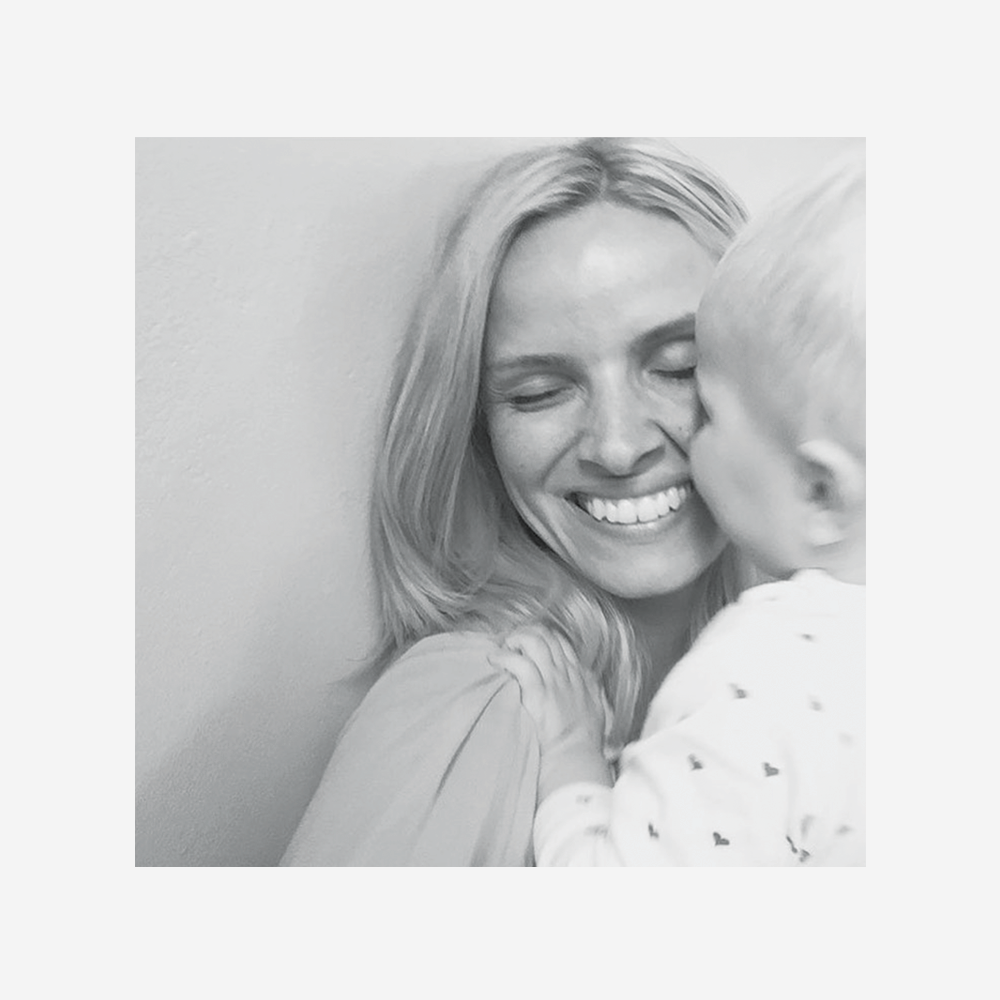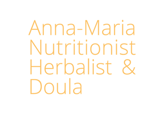The answer is Melatonin (also known as N-acetyl-5-methoxy tryptamine) - a powerful sleep/wake cycle hormone. Why is this hormone so important? Because if you understand what's required for birth to start and unfold naturally, you can do your best to make it happen. You want to ensure you have the right birth setting and environment to get the most out of the effects of the Melatonin hormone release.
I often speak about the importance of preparing your mind and your body for birth and motherhood, and I classically compare it to preparing for a marathon or a trip around the world. You need to prepare; you need to research and plan ahead because you will need to be in the best mindset and have the best experience possible. There is a wide range of things you need to optimise for the birth: your health, your physical strength and flexibility, and your emotional health. You can prep food for the postpartum, and you can set up the help you need to feel the best possible. All of it will help you to be as ready and relaxed for the imminent birth that needs to take place, for you to meet your baby, and for you to become a parent. I have many blog posts about this, and you can always get in touch to get help.
To assure good pregnancy health, you need emotional and physical support, as well as birth education. These different layers of support are non-negotiable to ensure you are as prepared as possible for the arrival of your baby. One of my favourite parts in my work is to offer information - I love giving people what they need to feel great, achieve a positive birth, and be in sound health.
What is Melatonin and why is it so important?
You've probably heard about Melatonin but not in relation to birth. This powerful sleep/wake cycle hormone is a massive player in the progress of birth. Why? Because it works to improve and initiate the function of yet another very powerful birth hormone; Oxytocin - our love hormone and the hormone that is required for contractions to take place. This perfect companionship of melatonin and oxytocin is the cellular foundation of a blissful and natural birth.
Allow me to dive a little deeper, so you fully understand. Melatonin crosses into the placenta, and as it does this, it is giving your baby more oxytocin. That means more love hormone for your baby, and that means your baby is feeling pretty blissful and safe in your womb.
How to optimise your Melatonin levels?
How can you ensure you have optimal levels of melatonin and oxytocin? Eliminate as much exposure to LED light as you possibly can. Set up your birthing space with reduced light, and especially minimise the use of any LED light. Melatonin levels will diminish when you are exposed to LED light. It is essential that the environment in which you labour and give birth is supportive of this hormonal dance that is taking place within you. So focus on dim lights, natural light, and a calm environment to support you in your labour.
Having a dimly lit birthing environment will reduce neocortex activity, which is desirable and allows your primal brain to be the main driver in prelabour. This makes way for melatonin and oxytocin levels to increase and work their magic. If you are wondering if this is possible to achieve in a hospital setting, I can tell you that it definitely is possible! In fact, it is the number one thing I work on when I first arrive at the hospital with my doula clients: to make sure they settle into the new environment with dimmed lights so their labour can progress smoothly.
Apart from being oxytocin's best buddy, melatonin is also an antioxidant. It helps to mop up oxidative stress and supports other cellular antioxidant activities and enzymes. Melatonin sounds pretty great, right!? Last but not least, melatonin is hugely beneficial for lactation in the postpartum period, so it is a continuous helpful hormone during this time.
Quick roundup about the positive effects of Melatonin:
- Melatonin is produced naturally at night to promote sleep
- Melatonin initiates the function of oxytocin and helps to boost oxytocin levels during birth
- Melatonin helps with lactation in the postpartum period
What can you do to help your labour to start and progress naturally?
Dim the lights and only expose yourself to natural lights. Slow down, rest, and eat well. Surround yourself with nature and do activities that bring you joy and love. Get as romantic as you feel like with your partner to stimulate more oxytocin, ideally in a dimly lit environment. Many midwives suggest the labouring woman drink a (small) glass of red wine in prelabour to ensure she can rest. The reason for this is that it can reduce neocortex activity, the part of the brain that is your 'intellectual' brain, and this again will allow for the primal brain to be active, allowing natural labour to unfold.
What if you have a C-section?
In relation to the health benefits of melatonin and oxytocin on you and your baby, there are much greater benefits in having a C-section after active labour has started, as opposed to a C-section earlier on, due to you and your baby having more exposure to the labour hormones. Having said that, you can still take steps to ensure you have a hormone-friendly birth environment in the postpartum stage, when possible. Read about gentle c-sections here.
What if you are being induced?
Well, everything still goes. I would recommend that you do a few things to prepare before you go in for your induction (if it is a planned induction and you have time to do some prepping). Go to a beach or the forest daily before your scheduled induction date. Be intimate with your partner, if possible. Slow right down, and be in the most relaxed state possible. I know this is easier said than done, but have trust in the process, and follow the steps below.
Here's an overview of what you can do to ensure you have the most hormone- and birth-friendly environment:
- Be in your least stressed state. Deal with any anxiety that comes up in pregnancy and labour; how can you do this? Speak to your caregivers when appropriate, i.e., if it is health and birth related. Seek support for emotional challenges. Walking and spending time in nature has been shown to significantly reduce anxiety, reduce stress, and improve emotional wellbeing.
- Laugh every day - laughing will reduce your stress hormone cortisol and increase serotonin along with boosting your immune function. Laughing in labour is a total must! Yes, labour is hard and perhaps challenging for most of us, but having a laugh with your birth team is most likely going to help you along and support your hormones.
- Consider natural and low lighting for your labour journey and in the moments leading up to your due date.
- Be nourished and hydrated. If your body is packed with healthy and wholesome foods and fully hydrated you have the best possible set up for a successful no-intervention labour. Hydration in labour can pose a risk to your baby's health and can affect your contractions - potentially causing your labour to stall.
- Feel safe in your surroundings and with your birth team. Feeling loved, supported and cared for will allow for your natural physiological birthing process to take place. As Ina May Gaskin (highly appreciated and respected midwife) says, "When a woman is feeling safe and labouring well, she will look beautiful with a rosy glow." I can attest to this. I always check how my labouring client is looking - and I often know if unwanted feelings or worries are lingering in her mind because her posture, movement, sound and overall bodily expression will show me. A few adjustments to the room, her positioning and a gentle conversation and check-in can set her back on track looking graceful, powerful and with that distinct rosy glow.
References: "Melatonin Synergizes with Oxytocin to Enhance Contractility of Human Myometrial Smooth Muscle Cells" | https://www.ncbi.nlm.nih.gov/pmc/articles/PMC2730229/ | James T. Sharkey, Roopashri Puttaramu, R. Ann Word, and James Olcese

Get A Free Gift
My Top 10 Foods for a Happier Healthier Mum
As a fellow mum (of three wonderful girls) I really know how challenging and exhausting being a mum can be at times!
When I first became a mum I realised just how much my lifestyle and diet played a part in how well I coped with the demanding tasks of caring for my little ones.
I help so many women through all kinds of burnout, exhaustion, weight gain, digestive and hormone problems, illness and general low's.... and I never get tired of seeing just how well they respond to my graspable and nurturing support. It really makes my job such a blessing, to be able to help you.
Alright, let's get to it! Here are my top 10 tips to become a happier and healthier mum!



